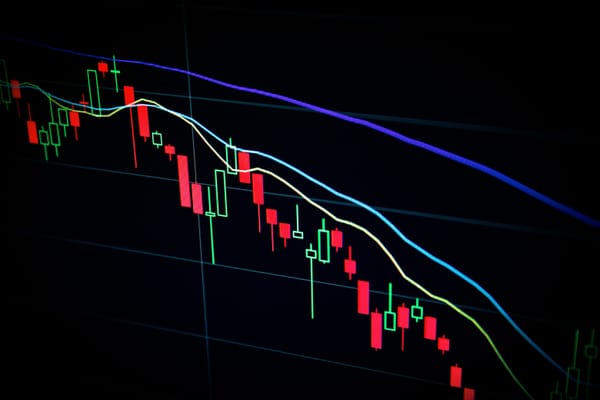What really is Cleantech investing?
How clean really is the technology thats getting been getting fast praise in the green era of investing

Cleantech, or clean technology, means using technology to find solutions for a reduction in negative environmental changes. It focuses on shifting production processes and the use of goods and services that are harmful for the environment into environment-friendly processes. The importance of climate and the idea to work towards conserving and saving it is not new. The cleantech trend has been in the market since the early 2000s, but was substantially reduced when the cleantech bubble burst after 2009. Nevertheless, as the climate conditions worsen, the value of clean tech has increased again, but this time it has increased across all sectors and with better technology and policies.
The cleantech trend during 2006-2011 was ahead of its time. Nevertheless, the trend was strong and encouraged a lot of investments in the start-up industry. Most of the investments made in the start-ups during this period were in capital intensive start-ups, e.g. Solyndra (solar energy company) and so on, which were long period investments with large timelines for technology development and slower returns. However, with the bubble burst, so did the investments. The VC firms lost more than half of their investments and many start-ups were unable to pay back the money invested. There are two main groups of factors that led to this downfall. Firstly, the factors that directly affected the cleantech industry: The high price of renewable energy, inadequate technology, lack of urgency i.e., people’s belief that the effects of climate changes will affect the future generations to come, but not substantially the present. Second, factors that indirectly affected the cleantech industry: the great recession. The financial crisis in 2007-2008, led to the shortage of cash flow, falling real estate market, high unemployment, decrease in the confidence of investors in the market. Understandably, surviving in such a period would have been a challenge.
However, the recent and persistent climate change effects have caught the attention of everyone. The forest fires in California, floods in Germany and heatwaves in Europe and Canada all within a couple of years have emphasised the severity of climate change. This allowed for the re-emergence of the cleantech trend. However, this time the ‘cleantech revolution’ is more mature as compared to its previous version and also covers a wider spectrum of sectors. In the early 2000s the main investments in cleantech were in solar and wind energy. This has now expanded to hydrogen and Electric vehicles with a major focus on decarbonisation. In the recent United Nations climate change conference(COP26), there was an emphasis on reducing emissions from agricultural production as well rather than just industries and transportation. This shows a serious climate change consideration from all the sectors rather than just the basic ones.
Additionally, there has been a substantial increase in technological advancement which has allowed a great reduction in the prices of renewable energy, allowing them to compete with prices of fossil fuels. Due to technological advancement in solar energy, the price has decreased from $359Mwh in 2009 to $40Mwh in 2019 i.e. 89% reduction due to development of solar photovoltaics. Similarly, due to the development of onshore wind the price of wind energy has reduced from $135 Mwh (2009) to $41MWh (2019), a 70% reduction.
The development in this industry is complemented by various government policies such as the US-Consolidated Appropriations Act and Notice 2021-05 from the Treasury, which includes the extension of tax credits for solar investment and wind production; USA’s intention of spending $2 trillion in EV development and establishing charging stations; the launch of ‘hydrogen strategy’ by the UK, which aims at using hydrogen for 20-35% of energy generation by 2050; China and Japan also aim to achieve net-zero carbon emission by 2060 and 2050 respectively. Also, Canada’s 2021 budget emphasises carbon reduction by introducing investment tax credit for investments in carbon capture, utilisation and storage projects to reduce more than 15 megatons of CO2 annually. There is a surge in policies of climate change in different nations all over the world indicating the emergence of a global market for cleantech. This global cleantech sector is expected to be worth more than $2.5 trillion by the end of 2022.
Along with this, due to the increase in negative effects of climate change, many companies have established ESG (Environmental, Social and Governance) departments that analyse the sustainability of the investments, the impact of a decision on society and so on.
The evolution and progress in the industry has increased the investor’s confidence considerably. This increase is depicted in the performance of the stocks of this industry in the market. The stocks started to gain traction again by the end of 2018 and eventually outperformed the already bullish market during COVID-19. For instance, the Deloitte Australian Cleantech index rose by 33.9% in 2020. The Venture capitalists have also started to invest strongly in start-ups as the funding increased from $1.5 billion in 2020 to nearly $6 billion in 2021.
The rapid attention and popularity in the cleantech market has led to a considerable increase in stock prices and funding. The growth in the sector is mainly due to technological developments and since this is an evolving industry, there exists a huge scope for improvement. As new improvements are introduced, the industry will keep on performing well. However, as more players enter the industry, the competition will increase leading to an increase in investment options and decreased profit margins of individual companies. Therefore, the growth momentum of the cleantech industry on average will eventually start to reduce, unless a major technological advancement is experienced in the industry.
Nitya is a member of the Investment Society writers’ team, studying an MSc in Financial Technnology at Imperial College Business School.
These are generally caused when the confidence in the future performance of good/service/stock is exceptionally high.
When the bubble bursts the value of the good/service/stock reduces back to what it should have been. For instance, Gamestop stock experienced a bubble.









